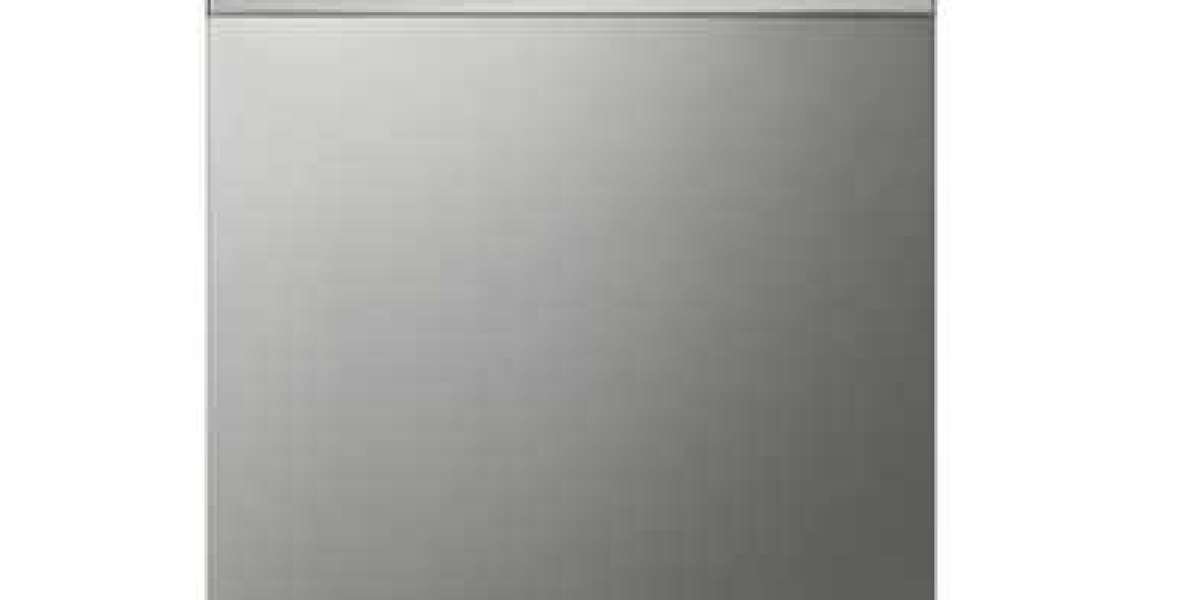When it comes to kitchen appliances, a dishwasher is often considered one of the most essential tools for maintaining a clean and organized home. Not only does it save time and effort in managing dirty dishes, but it also contributes to more hygienic cooking environments. With a diverse range of models, sizes, and features available in the market, selecting the perfect dishwasher for your kitchen can be overwhelming. This blog post will guide you step-by-step on how to choose the ideal dishwasher for your home, considering your specific needs, preferences, and budget.
Understanding Your Needs
Before diving into the various specifications and features of dishwashers, it’s crucial to understand what you need. Here are some questions to contemplate:
a. Household Size
The size of your household is a significant factor that plays into the dishwasher capacity you choose. If you have a small family or live alone, a compact model may suffice. Larger families or those who frequently entertain guests may benefit from a standard-sized model with a higher capacity.
b. Dishwashing Frequency
Reflect on how often you wash dishes. If you cook elaborate meals daily or host gatherings frequently, a high-performance model with advanced cleaning features could be beneficial. Conversely, if you only wash dishes sporadically, a simpler model may meet your requirements.
c. Types of Cookware and Dishware
Consider the kinds of cookware and dishware you typically use. Not all dishwashers can effectively accommodate pots, pans, or specific types of glassware. Be sure to evaluate the interior layout of the dishwasher you are considering to accommodate your specific needs.
Types of Dishwashers
There are several types of dishwashers to choose from, each with its own unique features and benefits.
a. Built-in Dishwashers
Built-in dishwashers are integrated into your kitchen cabinetry, offering a clean and seamless look. They usually provide ample space for dishes and are available in various configurations (full-size, compact, or even drawer dishwashers).
b. Portable Dishwashers
If you live in a smaller space or require flexibility, a portable dishwasher is a great option. These freestanding units can be moved easily and can connect to your kitchen faucet.
c. Drawer Dishwashers
Drawer dishwashers come in stacked compartments, allowing you to run smaller loads more efficiently. They are ideal for smaller kitchens and are typically more energy-efficient.
d. Countertop Dishwashers
Countertop models are compact and can sit on your kitchen counter. While they have a limited capacity, they are perfect for small apartments or places with minimal kitchen space.
Capacity and Size
The capacity of a dishwasher is typically measured in place settings. A place setting includes items like a dinner plate, a salad plate, a bowl, a cup, and utensils. Here is a breakdown of capacities:
- Compact Dishwashers: 6-8 place settings
- Standard Dishwashers: 12-16 place settings
- Large Capacity Dishwashers: 16+ place settings
a. Measuring Your Space
Before making a decision, measure the allocated space for your dishwasher. Check for height, width, and depth to ensure that you choose a model that fits comfortably into your kitchen layout.
b. Considering Design Aesthetics
Dishwashers come in various finishes, colors, and styles. While it is essential to choose one that fits your kitchen's design, ensure that the model you select complements your other appliances for a cohesive look.
Energy Efficiency
One of the most critical factors in choosing a dishwasher is its energy consumption. Look for models that have the ENERGY STAR rating, as these appliances meet strict energy efficiency guidelines and can save you money on your utility bills over time.
a. Water Efficiency
Another essential consideration is water usage. Modern dishwashers use significantly less water than hand-washing dishes. Check the water consumption of different models to find one that conserves resources while efficiently cleaning your dishes.
Cleaning Performance
The primary purpose of a dishwasher is to clean your dishes effectively. Here are some features that may enhance cleaning performance:
a. Wash Cycles
Different models offer various wash cycle options, such as heavy, normal, light, and quick washes. Some dishwashers even have specialized cycles for pots and pans or delicate glassware. Consider a model with multiple cycle options to handle different cleaning needs.
b. Spray Arm Features
A high-quality spray arm is crucial for even water distribution throughout the dishwasher's interior. Look for models with multi-directional or adjustable spray arms ensuring more effective cleaning coverage.
c. Filter System
Dishwashers typically have filter systems to trap food particles and debris. Some models have self-cleaning filters, while others require periodic manual cleaning. Assess which type of filter suits your maintenance preferences.
Noise Levels
Noise can be a significant factor, especially in open-concept spaces. Dishwashers are rated in decibels (dB), and lower numbers indicate quieter operation.
- Quiet Models: 40-50 dB (ideal for open kitchens)
- Moderate Models: 50-60 dB (acceptable for regular use)
- Noisy Models: Above 60 dB (may be disruptive)
Choose a model with lower decibel levels if you prioritize quietness during operation.
Features and Technology
Modern dishwashers come equipped with various features that enhance functionality and user experience. Here are some popular options:
a. Smart Technology
Smart dishwashers can connect to your home network and allow you to monitor and control wash cycles remotely. Some models can send alerts to your smartphone when a cycle is complete.
b. Third Rack
A third rack provides additional space to store cutlery and small dishes, improving organization and maximizing the dishwasher’s capacity.
c. Delay Start Function
The delay start option allows you to set a wash cycle to begin at a predetermined time. This feature is perfect for loading dishes during the day and running them overnight when energy rates may be lower.
d. Soil Sensors
Some models are equipped with soil sensors that can detect how dirty a load is and adjust wash cycles accordingly for efficient cleaning and water usage.
Costs and Budgeting
When selecting a dishwasher, it’s essential to have a clear budget. Dishwashers can range from under $300 for basic models to several thousand dollars for high-end, feature-rich designs.
a. Upfront Costs vs. Lifetime Costs
While it may be tempting to choose the cheapest model available, consider the long-term costs associated with less-efficient models, including higher utility bills and potential repairs. In many cases, investing in a more efficient and reliable unit pays off over time.
b. Rebates and Incentives
Don’t forget to research potential rebates or tax incentives for purchasing ENERGY STAR-rated appliances, as these can significantly reduce your overall costs.
Maintenance and Cleaning
Choosing a dishwasher that is easy to maintain will save you time and frustration in the long run. Regular maintenance is essential for keeping your dishwasher operating at its best.
a. Cleaning the Interior
Regularly cleaning your dishwasher’s interior, including the spray arms and door seals, can prevent odors and improve performance.
b. Descaling
Depending on your water source, mineral buildup can occur over time. Using a descaling agent periodically can help keep your dishwasher in peak condition.
Reading Reviews and Getting Recommendations
Before making a final decision, it’s wise to read customer reviews and gather recommendations from trusted friends or family. Insights from others who have purchased specific models can provide valuable information regarding reliability and performance.
a. Reliability Over Features
While advanced features can be appealing, prioritize reliability and cleaning performance. A model that performs consistently well will serve you better in the long run.
Conclusion
In conclusion, selecting the perfect dishwasher for your kitchen involves careful consideration of various factors, including size, capacity, energy efficiency, noise level, and features that align with your cooking habits and lifestyle. Start by assessing your kitchen space and the needs of your household to determine the right type and size of dishwasher. Prioritize energy-efficient models to save on utility bills while contributing to environmental sustainability. Additionally, consider noise levels, especially if your kitchen is close to living areas, and look for features that enhance convenience, such as flexible loading options and smart technology. By taking the time to evaluate these key aspects, you can find a dishwasher that not only fits seamlessly into your kitchen but also enhances your culinary experience, making clean-up a breeze. With the right choice, your dishwasher will become an indispensable ally in your daily routine, delivering efficiency and reliability for years to come.







